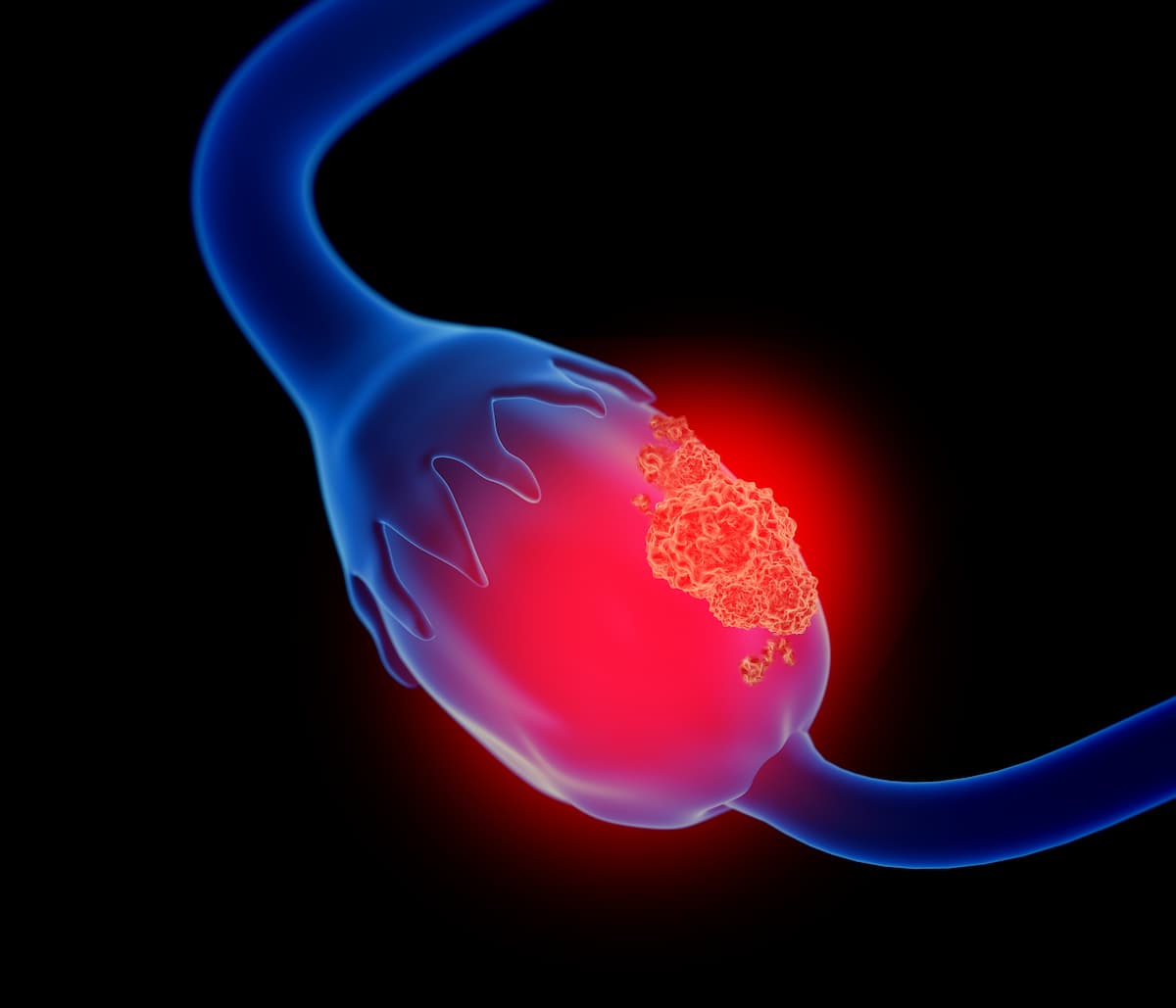Avutometinib Combo Yields Responses in Low-Grade Serous Ovarian Cancer
Updated findings from RAMP 201 show that avutometinib/defactinib is generally well tolerated among those with low-grade serous ovarian cancer.
"These updated results confirm the potential of this new combination therapy to change practice and be the new standard for care for recurrent low-grade serous ovarian cancer, which previously had limited effective treatment options," according to trial investigator Susana Banerjee, MBBS, MA, PhD, FRCP.

Administering avutometinib with defactinib produced robust responses among patients with recurrent low-grade serous ovarian cancer (LGSOC), according to a press release on updated findings from the phase 2 RAMP 201 trial (NCT04625270).1 Investigators presented these data at the International Gynecologic Cancer Society (IGCS) 2024 Annual Meeting in Dublin, Ireland.
With a data cutoff date of June 30, 2024, primary analysis data showed a confirmed overall response rate (ORR) of 31% (n = 34/109; 95% CI, 23%-41%) with the avutometinib combination among all evaluable patients who had measurable disease. Additionally, the confirmed ORR was 44% (n = 25/57; 95% CI, 31%-58%) and 17% (n = 9/52; 95% CI, 8%-30%) for patients with KRAS-mutated disease and KRAS wild-type disease, respectively.
Avutometinib/defactinib yielded a median duration of response (DOR) of 31.1 months (95% CI, 14.8-31.1) across all evaluable patients, 31.1 months (95% CI, 14.8-31.1) in the KRAS-mutated disease subgroup, and 9.2 months (95% CI, 5.5-not evaluable [NE]) in the KRAS wild-type subgroup. Across each respective group, the median progression-free survival (PFS) was 12.9 months (95% CI, 10.9-20.2), 22 months (95% CI, 11.1-36.6), and 12.8 months (95% CI, 7.4-18.4). Additionally, the disease control rate (DCR) at 6 months or longer was 61%, 70%, and 50%, respectively.
Investigators noted that treatment with avutometinib/defactinib was typically well-tolerated; they identified no new safety signals. Adverse effects (AEs) leading to treatment discontinuation were reported in 10% of patients. Common any-grade and grade 3 or higher AEs, respectively, included nausea (67.0% vs 2.6%), diarrhea (58.3%, 7.8%), and blood creatine phosphokinase level elevations (60.0% vs 24.3%).
“The notable response rates and low discontinuation rate seen with the combination of avutometinib and defactinib are significant,” lead trial investigator Susana Banerjee, MBBS, MA, PhD, FRCP, a consultant medical oncologist at The Royal Marsden NHS Foundation Trust and Team Leader in Women’s Cancers at The Institute of Cancer Research in London, United Kingdom, stated in the press release.1 “These updated results confirm the potential of this new combination therapy to change practice and be the new standard for care for recurrent low-grade serous ovarian cancer, which previously had limited effective treatment options.”
According to the press release, the FDA recently held a Type A meeting with developers Verastem Oncology to discuss alignment on a new drug application (NDA) submission for the avutometinib combination in adult patients with recurrent KRAS-mutated LGSOC who received 1 or more prior lines of systemic therapy. The NDA is supported by findings from the RAMP 201 trial and is anticipated to be submitted in October 2024.
At the time of the meeting, the FDA did not recommend for developers to pursue an accelerated approval pathway for a KRAS wild-type indication. As part of planning a path forward for the avutometinib combination’s approval, developers intend to leverage data from the ongoing phase 3 RAMP 301 trial (NCT06072781), which includes patients with recurrent LGSOC of any KRAS mutation status. Data from the confirmatory RAMP 301 trial may support avutometinib/defactinib in the initial KRAS-mutant indication and may expand the indication regardless of KRAS mutation status.
“In the mature data from the RAMP 201 trial, most patients achieved tumor reductions and a median [PFS] that was greater than 1 year across both KRAS-mutant and KRAS wild-type patient populations. These results reinforce our confidence in the potential of the combination of avutometinib and defactinib to change how patients with recurrent [LGSOC] are treated,” John Hayslip, MD, chief medical officer at Verastem Oncology, stated in the press release.1 “Encouraged by the durable clinical benefit seen in KRAS wild-type [disease] in RAMP 201 and the poorer prognosis in this subset of patients [who] are treated with suboptimal treatment choices today, we believe that this treatment combination will be the preferred treatment option for all subgroups of patients with recurrent [LGSOC].”
Developers previously began their rolling submission of a NDA supporting the potential accelerated approval of avutometinib/defactinib in previously treated patients with KRAS-mutated recurrent LGSOC in May 2024.2
References
- Verastem Oncology presents positive updated RAMP 201 data for avutometinib and defactinib combination in recurrent low-grade serous ovarian cancer at the International Gynecologic Cancer Society (IGCS) 2024 Annual Meeting. News release. Verastem Oncology. October 17, 2024. Accessed October 18, 2024. https://tinyurl.com/zuxdeuwh
- Verastem Oncology announces the initiation of a rolling submission of NDA to FDA seeking accelerated approval of avutometinib and defactinib combination for the treatment of adult patients with recurrent KRAS mutant low-grade serous ovarian cancer. News release. Verastem Oncology. May 24, 2024. Accessed October 18, 2024. https://tinyurl.com/mfxmuk29